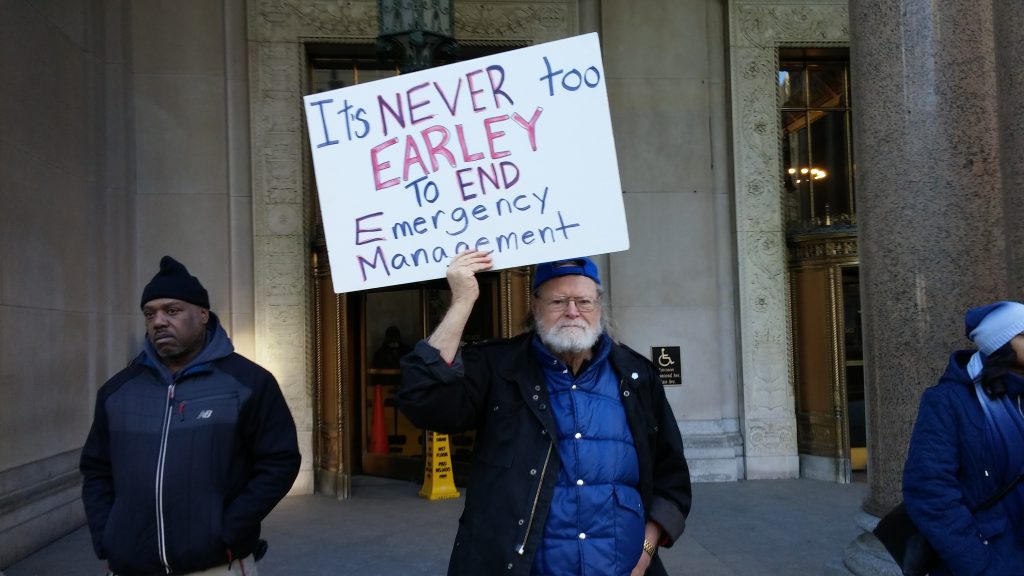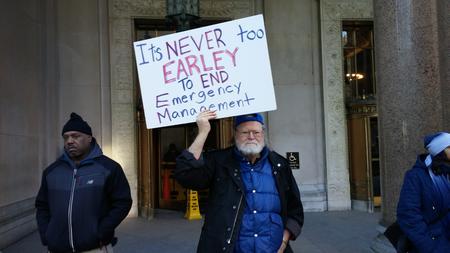Appeals Court Hears Challenge To Emergency Manager Law
If the challenge succeeds, the case would go back to a lower court for trial.


Opponents of Michigan’s emergency manager law still hope their legal challenge will go to trial. On Thursday, they asked a federal appeals court in Cincinnati to order one.
They say efforts by Gov. Rick Snyder and Republicans in the Legislature to fix the finances of struggling local governments in Michigan go too far and discriminate against minority voters.
According to an audio recording of the 48-minute hearing, attorney Herb Sanders told a panel of the Sixth Circuit U.S. Court that Michigan’s emergency manager law strips the rights of voters in cities that have been taken over by the state:
“The governor’s appointment of an emergency manager provides the means for imposing on a city or school district an agenda that does not reflect the will of democratically elected officials or the voters they represent.”
Sanders also said the law is applied far more often to cities with African American majorities and leadership:
“In the same way that the slave owners used the enslaved to enhance their political influence – the Three-Fifths Compromise – the governor is able to use those subject to emergency managers to enhance his own political influence, if not political dominance at the local level.”
The attorney for Gov. Snyder said the law does not discriminate. And she said the state has a responsibility to step in when a city or school district faces a financial emergency:
“The act is restorative in nature,” said Ann Sherman. “It is temporary in nature, and it’s designed to fix serious emergencies in the state’s local governments.”
Sherman said that benefits all Michigan residents and protects the state’s credit rating. She also said local officials do have some limited powers even under emergency management.
If the challenge succeeds, the case would go back to a lower court for trial. A federal judge in Detroit dismissed complaints that the emergency manager law violates free speech and voting rights.
